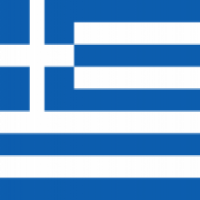Summary:
The Faulty of Veterinary Science of a Greek university seeks partners from Norway that are active in aquaculture research or production to contribute their know-how / expertise to a project to be submitted to the Business Innovation Greece funding programme. The proposal aims to implement a pilot test for breeding wrasse, otherwise known as cleaner-fish, in the Mediterranean region for use in environmentally-friendly parasite control in fish farming.
Description:
The Veterinary Science Faculty of a Greek university is preparing a proposal to test a clean and environmentally-friendly method for exterminating sea lice in farmed fish.
Sea lice (ectoparasitic copepod crustaceans) are the most damaging parasite to the salmon farming industry in Europe. The chemical treatments available for controlling sea lice are very resource-intensive, demanding both time and money. In addition, they are detrimental for the environment. Research has shown that the yearly economic loss for the salmon farming sector due to sea lice is close to 80 million dollars.
The cleaning features of the wrasse fish on farmed salmon was first observed in 1987 in Norway. This initiated the widespread use of wrasse in salmon farms in northern Europe.
Cleaner fish, notably the wrasse species, have been used effectively by salmon farmers in Scotland, Norway and Ireland to clean sea lice from the fish they produce. Salmon hatcheries in this area of Europe have been breeding their own wrasse fish for the biological control of ectoparasites in salmon.
This project will examine the advantages of biological control of sea lice for Mediterranean aquaculture species (bass, bream) and will investigate the possible species of wrasse (of the Labridae family) that could be used in the Mediterranean region (for example Goldsinny wrasse Ctenolabrus rupestris, or Symphodus tinca, East Atlantic peacock wrasse).
The proposal aims at the development of an experimental hatchery in the Mediterranean region for the breeding of wrasse. The expected end result will be the supply of cleaner-fish juveniles for the whole of the Mediterranean aquaculture Industry (which amounts to more than half a million tonnes per year of sea bass and sea bream, and other brackish water species).
The Greek university is looking for research and production partners in Norway to contribute their know-how and/or expertise to the project to be submitted to the Business Innovation Greece funding programme.
Type (e.g. company, R&D institution…), field of industry and Role of Partner Sought:
The Greek university is searching for partners from Norway with know-how in the field of aquaculture. Ideal partners would be research innovation centres or aquaculture production companies.
Stage of Development:
Under development/lab tested
IPR Status:
Secret Know-how
External code:
RDGR20190405001








